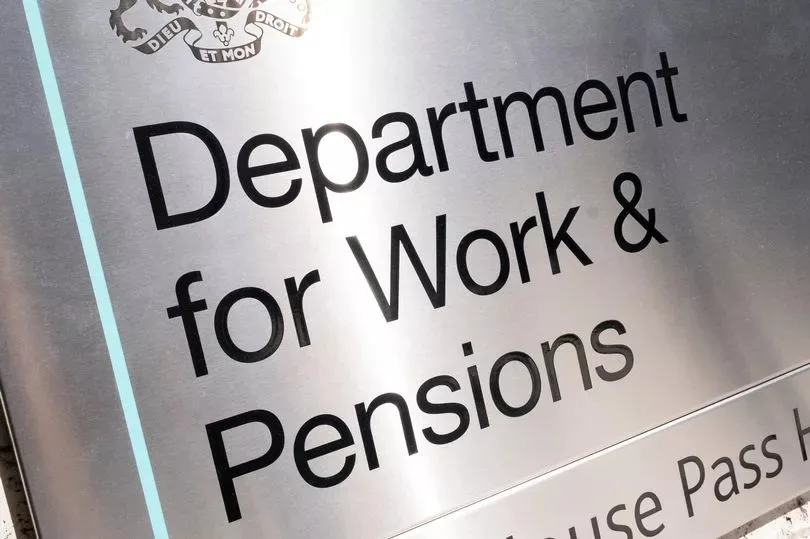
Image Credit: yahoo!news
The Department for Work and Pensions (DWP) plays a crucial role in ensuring that UK pensioners receive their state pensions and associated benefits securely and efficiently. A vital aspect of this system involves the use of DWP bank accounts for pensioners, where funds are directly deposited for ease of access and safety. With modernized processes and options tailored to suit different needs, the DWP has streamlined payments while safeguarding pensioners’ financial independence.
This article delves into how DWP bank accounts work, their benefits, and tips for pensioners to manage their finances securely.
Understanding the Role of DWP Bank Accounts
1. Why Are Bank Accounts Necessary for Pension Payments?
The DWP requires bank accounts to transfer state pensions and other benefits directly to eligible recipients.
- Efficiency: Direct payments minimize delays compared to cheque-based systems, ensuring pensioners have timely access to their funds.
- Security: Bank transfers are safer than physical methods, reducing the risk of theft or lost payments.
2. Who Needs a Bank Account?
Anyone eligible for the UK state pension or benefits, such as Pension Credit, is required to provide banking details for receiving payments.
- Eligibility: Pensioners can use standard bank accounts, building society accounts, or credit union accounts.
- Alternative Options: Those without traditional accounts may opt for Post Office Card Accounts or Payment Exception Service vouchers.
How to Set Up a DWP Bank Account
1. Choosing the Right Bank Account
Pensioners have several options when selecting a bank account:
- Current Accounts: Ideal for regular transactions and direct debits.
- Savings Accounts: Suitable for those who wish to save part of their pension for future use.
- Joint Accounts: Useful for couples who manage shared expenses.
2. Providing Banking Details to the DWP
To receive payments, pensioners must submit their banking details to the DWP during the application process.
- Information Needed: Bank name, sort code, and account number.
- Changes to Details: Pensioners can update their banking information by contacting the DWP to avoid disruptions in payments.
3. Options for Those Without Bank Accounts
For pensioners who prefer not to use traditional banking services, the DWP offers alternative payment methods:
- Post Office Card Accounts: These accounts are designed to receive state pensions and benefits but will soon be phased out.
- Payment Exception Service: Provides vouchers that can be redeemed at PayPoint outlets for those unable to access bank accounts.
Also Read: PIP Assessments DWP Changes: What Claimants Need to Know
Benefits of Using DWP Bank Accounts
1. Timely Payments
Pensioners receive their funds on time, ensuring they can manage bills, groceries, and other expenses without delay.
2. Enhanced Security
Bank transfers eliminate risks associated with lost or stolen cheques, offering peace of mind to pensioners.
3. Financial Management Tools
Modern bank accounts provide tools like online banking, statements, and budgeting features, helping pensioners manage their finances efficiently.
Managing Finances as a Pensioner
1. Budgeting Your Pension
Pensioners should create a budget to balance their income and expenses effectively.
- Track Expenses: Keep an eye on recurring expenses like utilities and rent.
- Set Savings Goals: Allocate a portion of your pension for emergencies or long-term plans.
2. Automating Payments
Using direct debits for bills simplifies financial management and reduces the risk of missed payments.
3. Avoiding Scams
Pensioners should remain vigilant to protect their accounts from fraud.
- Verify DWP Communication: Always confirm the authenticity of DWP emails or calls before sharing personal information.
- Secure Passwords: Use strong, unique passwords for online banking accounts.
Future Changes to DWP Bank Accounts
1. Transition Away from Post Office Accounts
The DWP is transitioning from Post Office Card Accounts to encourage wider use of standard banking services.
- Timeline: Most Post Office accounts will no longer be valid by 2024.
- Support: Pensioners affected by this change can contact the DWP for assistance in setting up alternative accounts.
2. Digital Banking Initiatives
As digital banking becomes more prevalent, the DWP is working to accommodate pensioners who prefer online services.
- Mobile Banking: Apps allow pensioners to access their accounts anytime, anywhere.
- Educational Support: Banks and charities are offering training to help older adults navigate online banking securely.
DWP Support Services for Pensioners
1. Helplines and Guidance
The DWP provides dedicated helplines to assist pensioners with questions about bank accounts and payments.
2. Financial Advice
Pensioners can seek advice from independent organizations like Citizens Advice or Age UK for help with managing their finances.
Conclusion
DWP bank accounts for pensioners offer a secure, efficient, and convenient way to receive state pension payments and benefits. Whether you’re using a current account, savings account, or alternative payment method, understanding your options can help ensure financial stability and peace of mind.
With ongoing changes such as the phase-out of Post Office Card Accounts and the rise of digital banking, staying informed and proactive is more important than ever. By choosing the right account and following best practices for financial management, pensioners can enjoy the security and simplicity of modern banking systems.
Also Read: Keir Starmer Net Worth: Understanding the Labour Leader’s Wealth
FAQs About DWP Bank Accounts for Pensioners
1. What Happens if I Don’t Have a Bank Account?
The DWP offers alternatives, such as the Payment Exception Service, for pensioners who cannot or prefer not to use traditional accounts.
2. How Do I Update My Bank Details?
You can contact the DWP through their helpline or online portal to update your banking information.
3. Are Post Office Card Accounts Still Available?
Post Office Card Accounts are being phased out, and pensioners are encouraged to switch to alternative banking options.
4. Can I Use a Joint Account for Pension Payments?
Yes, pensioners can use a joint account to receive state pension payments, as long as it meets DWP requirements.
5. What Should I Do if My Payment Is Delayed?
Contact the DWP immediately to inquire about delayed payments and ensure your account details are correct.







